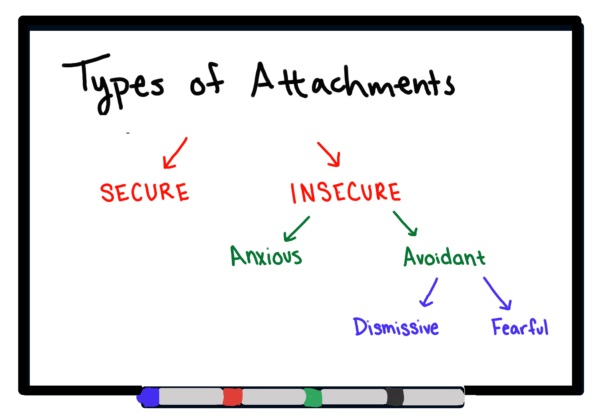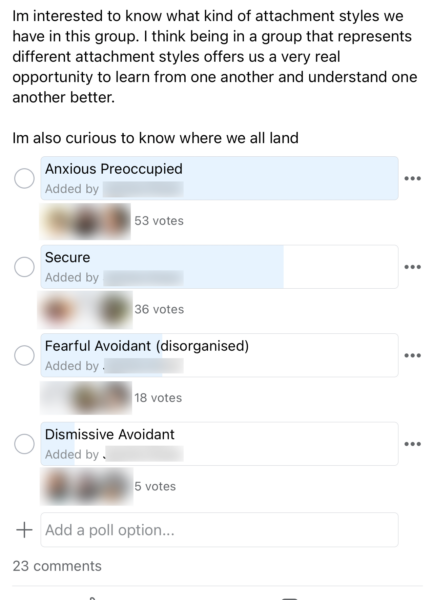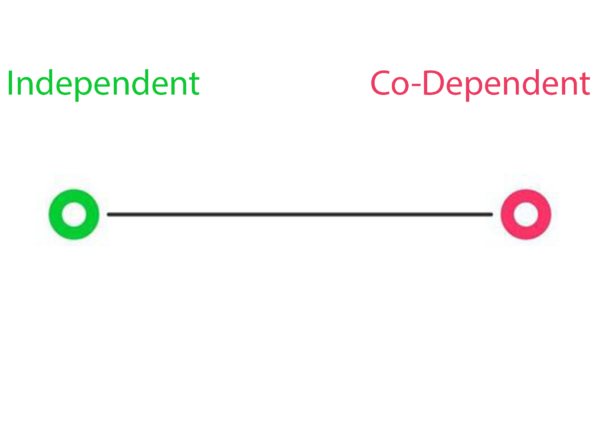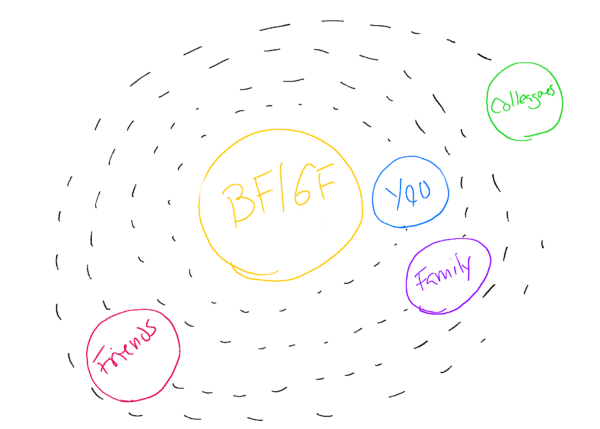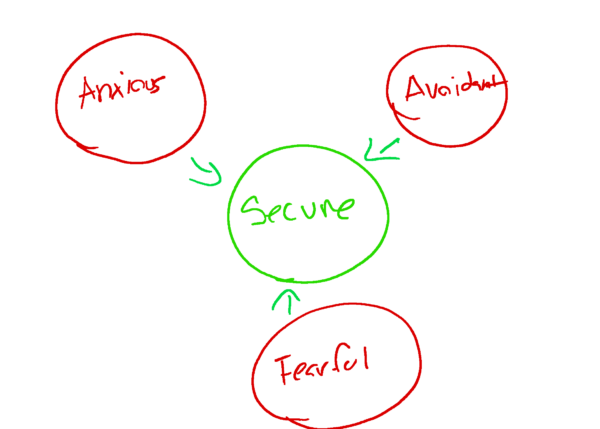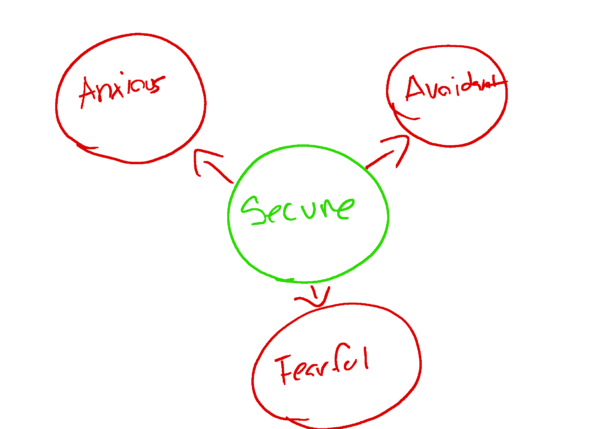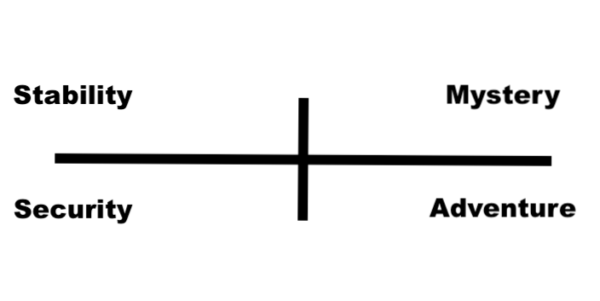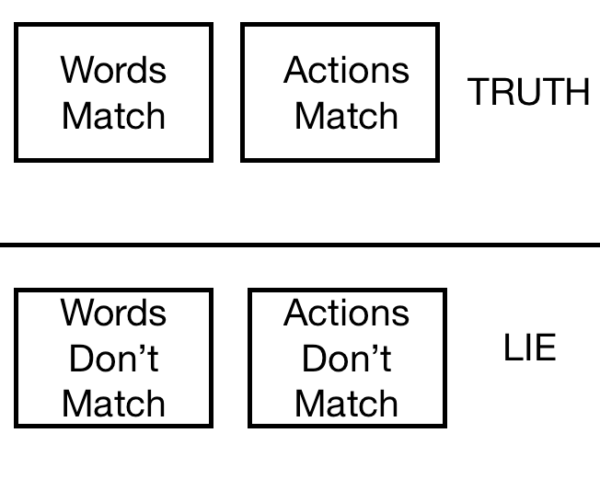If you are worried about your partner leaving you and breaking your heart then you came to the right place.
For the last decade we’ve studied everything from actual breakups to “the slow lead up to a break up” and we think we’ve come up with 15 powerful ways and strategies that you can implement to fix your broken relationship.
- Sincerely Apologize
- Instead Of Me (Think WE)
- Imagine Your Partner As A Child
- Find The Balance Of Having Independence And Close Relationships
- Adopt Secure Attachment Gravity
- Ask How Did I Hurt You?
- Show Appreciation
- Say I Love You
- Identify The Problems In The Relationship
- Go On Exciting Dates
- Write Them A Letter
- Learn Their Love Language
- The Magic Relationship Rule
- Show Don’t Tell
- Beware Of The Four Horseman
A LOT to talk about today so let’s dive in!

What Are Your Chances of Getting Your Ex Boyfriend Back?
Take the quiz#1: Sincerely Apologize
This may seem simple and obvious but there is a specific way to apologize.
Most people apologize the wrong way and shift the blame.
Here’s an example of how that looks,
“I’m sorry I gave you an attitude but you keep leaving your dishes out when your done with them when I asked you to put them away.”
See how that apology didn’t seem sincere?
So, here’s my trick,
Any time you want to say “but” simply replace it with “how you will change.”
“Im really sorry I lost my cool and gave you an attitude. I am working on my reactions and going forward I am going to think of us as a team. You mean so much to me and even though I was upset I want you to know I value you.”
#2: Instead Of Me, Think We
It’s best to consider yourself and your partner as a team.
You know, what’s interesting about this is that relationship behavior can often be understood through attachment styles.
Typically, there are four attachment styles:
- Secure
- Avoidant
- Fearful
- Anxious
Throughout the history of this website, we have dealt with individuals who are usually highly anxious, seeking to either attract someone or move on from someone who is highly avoidant.
Anxious client,
Avoidant ex,
What struck me as intriguing in this particular discussion is how often individuals with an avoidant attachment style like to perceive themselves as lone wolves.
This is quite common.

What Are Your Chances of Getting Your Ex Boyfriend Back?
Take the quizSomeone with an avoidant attachment style often has a core desire for independence, valuing their freedom as an individual.
However, if you are in a relationship with someone who has an avoidant side, it’s important to gradually work with them so that they can view collaboration not as a lone wolf but as part of a pack.
Avoidants tend to prefer the lone wolf approach due to their need for independence.
I’ve talked a lot about this in multiple videos on my Youtube channel but perhaps none more so than in this video,
However, to ensure a successful and long-lasting relationship, it is crucial to understand their needs.
Sometimes they may require space, and that’s okay.
Instead of perceiving it as them needing to tackle all problems on their own, you can slowly reframe things and encourage them to see themselves as part of a team or pack.
By doing so, you can accomplish much more.
Now, I’ll do the corny thing and quote from Game of Thrones:
“When the snows fall and the white winds blow, the lone wolf dies, but the pack survives.”
The same principle applies here. If you want a successful relationship, think of “we” instead of “me.”
#3: Imagine Your Partner As A Child
Here’s my best trick for handling situations when my partner does something that really annoys me.
Just a word of warning, it’s going to sound really strange, but it works like a charm.
Imagine you are talking to the kid version of them.
It’s not about treating them like a child, but rather adopting a frame of mind that allows you to forgive the little things.
Even if you still feel a surge of anger, it becomes difficult to sustain that anger when you picture the adorable, innocent baby version of them.
This shift in perspective has proven invaluable in helping me let go of trivial grievances and maintain a more forgiving outlook in my relationship.
#4: Find The Balance Between Independence And Close Relationships
The next step is to find a balance between independence and close relationships.
It’s best to see this as a spectrum.
On one end of the spectrum, we have individuals who are completely independent.
We’ve already discussed the concept of the lone wolf, where dismissive-avoidant types often prioritize their independence above all else.
That represents one end of the spectrum.
On the other end, we have close relationships or what could be seen as codependency.

What Are Your Chances of Getting Your Ex Boyfriend Back?
Take the quizThese individuals don’t revolve their entire lives around any form of independence. Instead, their lives revolve around one specific person.
As with most things in life, if you veer too far toward one end of the spectrum, problems can arise.
This is where the term “interdependence” becomes interesting.
An interdependent relationship is what we should all strive for. It’s a type of relationship where both partners recognize the importance of their emotional bond and their dependence on one another, but they are not consumed by it. They also understand the significance of each person having their own space and time.
I appreciate this concept because, in reality, hardcore avoidance is often viewed negatively, as is hardcore codependence.
However, the irony is that both of these so-called “negative” aspects are necessary in a relationship to make it work.
You do need to rely on your partner, as we discussed with the “we” concept earlier.
But you also need to give your partner space, allowing them to pursue their own aspirations, dreams, and goals.
Interdependence is about finding the middle ground and striking that perfect balance.
#5: Secure Attachment Gravity
Often, when you search on Google, you enter your query and end up on an article like this. And what’s the #1 thing that an article tells you?
Become more secure…
Well, here it is.
Become more secure.
But I’d like to dig a bit deeper. I would like to explain why secure attachment styles are highly sought after.
On Ex-Boyfriend Recovery, I often mention the concept of secure attachment gravity.
Specifically as it relates to the crazy internal battle that often happens in relationships with attachment styles.
There’s this crazy push and pull mechanism at play.
For example, you may have grown up in an environment with a secure parent, but if you go through a series of challenging relationships, your own secure attachment style can shift towards becoming more anxious or avoidant based on the experiences you’ve had.
This shows that attachment styles are almost constantly evolving based on the ups and downs of life.

What Are Your Chances of Getting Your Ex Boyfriend Back?
Take the quizHowever, one universal truth about attachment theory is that we always strive for a secure attachment style.
Let’s imagine that you and your boyfriend or girlfriend are in a relationship together.
You possess a secure attachment style while they have an anxious or avoidant attachment style.
By simply being in your presence, your security acts as its own solar system with its own sun. Just like how the sun and planets work, gravity pulls objects towards it.
It’s a basic explanation, right?
Well, a secure attachment style functions in a similar way. We are naturally drawn to people with secure attachment styles, and their presence can actually help heal our own insecure attachment styles through osmosis.
So, my argument is that if you can adopt a secure attachment style yourself, everything else tends to fall into place. Your ex could be drawn back to you, and your partner may become more attracted to you.
They can also heal their insecure attachment styles, and you can create harmony in your life.
#6: Ask “How Did I Hurt You?”
This seemingly simple question holds incredible power.
If you can genuinely ask this question and wholeheartedly listen without interrupting, taking it personally, or passing judgment, it can provide you with the answers needed to transform your relationship.
By creating a safe space for open communication, free from defensiveness or criticism, you invite your partner to express their feelings and share the ways in which they have been hurt.
This compassionate inquiry can serve as a turning point, offering valuable insights that pave the way for healing and growth in your relationship.
I also want to add on that this has a very loose connection to the idea of tactical empathy,
Tactical Empathy popularized by Chris Voss, a former FBI hostage negotiator.
In tactical empathy, the emphasis is on skillfully connecting with the emotions and experiences of the other person to gain insight into their needs, motivations, and concerns. It involves setting aside personal biases or preconceptions and focusing on understanding the other person’s point of view. By demonstrating empathy and validating their feelings, you can establish trust and rapport, which are crucial in negotiations and other interpersonal interactions.
Basically by asking “how did I hurt you” you are taking a meaningful step to show your partner that you actually care about their point of view. You are trying to understand their needs.
#7: Show Appreciation
One important aspect of nurturing a healthy relationship is to show appreciation.
Numerous studies have highlighted the positive effects of gratitude on our well-being, demonstrating that it can actually make us happier individuals.
However, it’s not just about personal happiness; expressing gratitude also plays a significant role in making your partner feel genuinely valued and appreciated.
Taking the time to acknowledge and thank your partner for their efforts, support, and presence in your life can foster a deeper connection and reinforce the positive aspects of your relationship.
Showing appreciation becomes a powerful tool for nurturing and sustaining a strong bond built on mutual respect and gratitude.
#8: Big Talk As Opposed To Small Talk (RECORD)
Recently, I came across a TED talk by a woman named Kalina Silverman, who is spearheading an intriguing movement called “big talk.”
We are all familiar with small talk—it’s the kind of conversation you would have with a stranger on the subway or someone at a party when you don’t feel like going.
You engage in small talk by discussing topics like the weather, the Dodgers, or the Yankees.
However, Kalina correctly assumes that real connections don’t form through small talk; they form through big talk.
I actually wrote an article a few weeks ago discussing the three elements of big talk.
- Firstly, you need to choose universal topics—ones that any human being can engage in.
- Secondly, your big talk questions should be open-ended, inviting more than a simple yes or no response and providing an opportunity to hear personal stories.
- Finally, big talk always needs to be meaningful. It goes beyond superficial discussions, allowing you to delve beneath the surface and explore matters of significance.
In that article, I provided nine examples of incredible big talk questions that are open-ended.
- What’s the most important life lesson you’ve learned so far?
- Can you share a personal challenge you’ve overcome and how it shaped you?
- What is something you are passionate about and why?
- If you could change one thing about your past, what would it be and why?
- How do you handle stress or pressure in your life? What does success mean to you?
- What’s the biggest risk you’ve ever taken, and what did you learn from it?
- If you could have dinner with anyone, alive or dead, who would it be and why?
- What are some goals or dreams you have for your future?
- Can you tell me about a person who has greatly influenced your life?
These examples represent big talk, as each question is open-ended and encourages individuals to open up and discuss topics that may not have been explored in the relationship before.
It is actually surprising to me, particularly with couples who have been together for a long time, how complacency can set in.
They begin to feel like they know everything about each other, so they stop asking meaningful questions and trying to learn more about their partner and their life.
Instead, they rely on small talk.
As a result, the relationship suffers.
#9: Identify The Problems In The Relationship
This one is a big one but it’s worth the effort to talk about.
It’s important for you to identify the problems in your relationship. Something made you come to this page and read this far down. Usually that means you and your partner (or ex) are struggling.
But by understanding the common reasons for breakups you can hopefully head off any problems before a breakup will occur.
The most common reasons for breakups are:
- communication issues
- cheating
- financial
- mental health
- time
- psychological abuse
- lack of sex.
Let’s talk a little bit about each.
Communication Issues
Communication issues can come from not having boundaries. I talk more about that here.
Cheating
Research across 160 cultures revealed that spousal infidelity is the most common reason for a breakup.
Here are a few quotes that I found particularly relevant,
“Thompson’s deficit model of infidelity suggested that relationships which are not optimal and are characterized by low satisfaction, high conflict and a lack of good communication play a significant role in the causal factors leading to infidelity.”
And this,
Selterman et al., found eight different variables which related to infidelity motivation. These included things such as feeling angry at a partner’s behavior; wanting more sex than is available in the primary relationship; wanting more intimacy and love than is available to them; having low commitment to the relationship; wanting greater autonomy; clouded judgement due to situational factors, such as stress; feeling mistreated or neglected; and wanting a greater number of sexual partners [65]. Consistent with the deficit model of relationship infidelity, they found that motivations related to a lack of love and neglect predicted participants’ reported intimacy with affair partners, such as expressing their love verbally in “I love you” statements, public displays of affection and engaging in longer affairs, while situational motivation was inversely associated with these experiences.”
But it’s not all bad news. According to this research, if you go to integrative behavioral couple therapy and stay married, married couples report an increase in the happiness of the marriage.
Here’s a direct quote,
“Furthermore, couples who remained married reported an increase in relationship satisfaction over time, regardless of infidelity status.”
Financial:
This is a great example on how financial issues can break down relationships taken directly from our community,
My partner, and I had an argument a week ago, since then he stopped helping me flipping houses as he used to do on he spared time and promised to help me this summer with, I assume just as a way of punishing me and show he’s mad.
His behavior caused me gigantic delays that are converted on loss of money.
I’m continuously working on these units as I don’t have his help anymore so I have to work double time now, and because of that I’m not giving attention to his tantrums and the fact that he’s being mean and rude to me due to the fact that I called him out prior to the argument happened and during the argument ad that I’m tired of his promises falling thru the cracks with me, some his promises towards me is how he will respect my time not to talk for couple of hours or so when I’m upset to not fight with me while I ask for time out, and he doesn’t respect yet says he will but never does, plus other stuff that he promises and can’t keep the promises for a full month.
So on the argument he reverted everything on me saying pretty much what he just texted bellow.
I can’t have one argument without him bringing issue from the past and make conclusions as the one below. I even mentioned to out therapist that every time we fight isn’t for the issue at the moment is him being up arguments of six years together that have been addressed previously.
I feel tired, beat up, and I want to throw in the towel, I’m just not sure if I should do it already or take my time to cool down more prior.
Mental health:
If you are experiencing mental health problems such as depression, mood swings, difficulty connecting with others, anxiety, anger outbursts, changes in sleep patterns, or insufficient sleep, it is important to seek professional help, such as a therapist, psychologist, or psychiatrist.
If your partner is the one dealing with mental health issues, it may be helpful to suggest couples therapy.
However, it is crucial to approach the topic sensitively, ensuring that your partner does not feel offended or that something is inherently wrong with them.
One way to accomplish this is by expressing,
“I think we should go to couples therapy because I am facing some challenges that I believe we could work on together.”
By focusing on yourself and your own struggles, your partner is likely to feel less attacked and more open to the idea of seeking professional support.
Time:
If your partner feels neglected in the relationship it could cause a breakup. It’s best to maintain a healthy work/life balance.
Psychological abuse:
Some signs of psychological abuse are
- Control
- Manipulation
- Devaluing
- Constant yelling
- Belittling
- Humiliating
- Using fear to intimidate
- Shifting responsibility
- Making comments to erode self-worth or self-esteem
- Withholding love, affection, or emotional support as a form of manipulation
- Financial control
- Isolating from friends and family
Lack Of Sex:
It’s important to figure out the cause of the lack of sex.
Some causes are,
- Lack of emotional intimacy
- Stress and fatigue
- Emotional factors like depression
- Hormonal imbalances
- Menopause
- Past trauma
- Religious and cultural beliefs or programming
- Being shamed in childhood
- Schedules that don’t align
#10: The Stability And Mystery Scale
Next is the stability and mystery scale.
Human beings have peculiar needs in relationships, but these needs often contradict each other.
On one hand, we seek someone who can provide stability, while on the other hand, we crave mystery, excitement, and adventure.
This is precisely why I developed the concept of the mystery and stability scale.
As someone who studies breakups, it occupies much of my time—hours and hours, five days a week.
Through studying breakups, I’ve discovered that many times the cause can be traced back to this scale.
In the early stages of a relationship, you may have been adventurous and spontaneous, and your partner fell in love with that aspect of you.
However, as time goes on, your inclination for adventure and mystery might give way to a desire for more stability. Rather than going out, you opt for cozy nights in with Netflix.
Complacency sets in, and stability becomes your primary focus, even if it’s not what your partner initially craved—they fell in love with the adventurous side of you.
Conversely, the opposite can also occur.
You may enter a relationship with someone who is incredibly mysterious and adventurous, but you find that they are always on the go, seeking constant excitement, while you yearn for stability.
Therefore, it is important to understand the ratio that best suits your partner. Sometimes they may prioritize excitement over predictability, while at other times, they may prefer predictability over excitement.
Each individual has different percentages.
Personally, I lean more towards 70% stability and perhaps 20% to 30% mystery. However, some people are the opposite, with 70% mystery and 30% stability. Although I haven’t come across a specific study on this topic, I believe it would be an intriguing concept to explore.
For individuals facing challenges within the realm of stability, going on exciting dates can be immensely meaningful.
It provides an opportunity for a phenomenon known as the misattribution of emotions.
Essentially, if you engage in an exhilarating or adrenaline-filled experience, the person you’re with is more likely to misattribute those exciting emotions from the experience to you. Therefore, take advantage of such opportunities.
#11: Write Them A Letter
My relationship with letters during breakups is long and complicated, but to summarize, I absolutely despise them.
However, in this discussion, we are not specifically referring to the time during a breakup. We’re focusing on the lead-up to a breakup. The rules for being in a relationship are vastly different from the rules for being out of one.
Therefore, writing a letter or engaging in such activities is completely acceptable.
On a personal note, I receive letters from my wife quite often.
They are not lengthy or particularly elaborate, but they are truly a treat.
They are usually letters of appreciation, expressing gratitude for various things.
I even receive letters from my daughter, who draws pictures and leaves them on my desk with a letter. I cannot emphasize enough how meaningful these letters are to me.
When I wake up in the morning, feeling tired and stressed, knowing I have to go to work and face the tasks of the day, seeing a letter on top of my laptop brings a surge of joy.
Even though I enjoy my work, it can become tedious at times, and having that small gesture of love and appreciation boosts my spirits.
If you think about it, the act of writing a letter allows you the opportunity to carefully consider what you want to convey.
It eliminates the possibility of mistakes that could occur if you didn’t plan it out.
However, I would argue that what matters even more than writing an apology letter or something similar is writing an appreciation letter. That’s what I always remember. I never find myself reflecting on the apology letters I’ve received throughout my life.
Instead, I often recall the appreciation letters because they make me feel good. The act of receiving an apology may bring back feelings of grief, whereas an appreciation letter brings joy and warmth.
#12: Learn Their Love Language
The 5 love languages are:
- Quality time
- Acts of service
- Physical touch
- Gifts
- Words of affirmation
Discovering and understanding each other’s love language is a vital component of building a strong and fulfilling relationship.
Gary Chapman’s concept of love languages emphasizes that individuals express and receive love in different ways.
It is crucial to recognize your partner’s primary love language, whether it is quality time, acts of service, physical touch, gifts, or words of affirmation.
While it’s beneficial to incorporate all the love languages into your relationship, focusing on your partner’s main love language can have a profound impact.
Remember that love languages can evolve over time, so ongoing communication and exploration are essential.
By making a genuine effort to speak your partner’s love language, you demonstrate your commitment and care, fostering a deeper emotional connection and mutual understanding.
#13: Follow The Magic Relationship Ratio
To understand the difference between happy and unhappy couples, Dr. Gottman and Robert Levenson began doing longitudinal studies of couples in the 1970s.
They asked couples to solve a conflict in their relationship in 15 minutes, then sat back and watched.
After carefully reviewing the tapes and following up with them nine years later, they were able to predict which couples would stay together and which would divorce with over 90% accuracy.
The key was a magic ratio!
That ‘magic ratio’ is 5 to 1.
This means that for every negative interaction during conflict, a stable and happy marriage has five (or more) positive interactions.
So, think back and look at your relationship through these lens.
Are you hitting the ratio?
#14: Show Don’t Tell
This is the number one advice often given to authors.
What it means in the context of novel writing is that instead of explaining what a character is thinking or doing, show them in action.
This technique is commonly used in plot development.
For example, if your character needs to retrieve someone who has been kidnapped, it is more effective and emotionally impactful to show the kidnapping happening rather than having the character engage in an internal monologue about it.
The simple rule of “show, don’t tell” can be applied to various aspects of life. It is always more meaningful and impactful to demonstrate rather than simply describe or explain.
This concept can be connected to the theory of words versus actions.
Carl Jung, one of the most renowned psychologists, stated,
“If you cannot understand why someone did something, look at the consequences and infer the motivation.”
In other words, when trying to understand what your partner is thinking, observe their actions and you can infer their motivations. Words versus actions play a crucial role.
The mistake I often see people making is relying too heavily on words instead of actions. If you approach life by leading with action rather than mere words, you will likely achieve better results.
#15: Watch Out For The 4 Horsemen
Watch out for the 4 Horsemen of Relationships:
- Criticism
- Contempt
- Defensiveness
- Stonewalling
If you notice yourself displaying these behaviors, you can reprogram your thinking by taking a step back and looking inward.
Ask yourself, “Why am I feeling this way?”
When you are calm and ready to discuss, start your sentences with “I” instead of “You.”
Then, hold a healthy boundary around the issues you’re having.
For example, let’s say your partner never puts the dishes away.
Instead of saying, “You never put the dishes away,” you could say, “I feel overwhelmed today. Could you do the dishes?”
This approach helps prevent resentment from creeping in and promotes open communication in the relationship.
